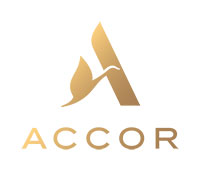Amadeus unveils next generation hotel distribution architecture
|
Amadeus unveils next generation hotel distribution architecture
|
Category: Worldwide
This is a press release selected by our editorial committee and published online for free on 2007-12-11
Distribution platform prepares hotel industry for new era in search, reservation and distribution
All hotel GDS operations now run Linux open systems technology
Amadeus, a global leader in technology and distribution solutions for the travel and tourism industry, has completed the migration of 75,000 hotel properties onto a next-generation distribution technology platform. The open systems technology allows Amadeus to introduce new search capability and provides the foundation for even more advanced search capability in the future. Amadeus' hotel GDS application now runs on the Linux operating system and uses OpenTravel Alliance XML standards to enable more sophisticated interactions with other systems.
Amadeus' new distribution architecture immediately doubles the search flexibility for travel agents. Hotels are now categorised according to 100 separate attributes giving travel agents much more precision when matching a hotel with their customers' requirements. This makes it possible to search for 'hotels in France with a swimming pool', for example. The flexibility of the new architecture also allows Amadeus much greater freedom to introduce advance search features as hotel distribution continues to evolve. Soon it will be possible to search for 'hotels in Thailand which were rated highly by families'.
Amadeus' new platform also offers much clearer and richer display of information about available rooms. Hotels will be able to seamlessly distribute available room/rates, price and descriptions in whatever language the travel agent requests. For example, hotels can seamlessly upload a wide variety of information in different languages about room amenities, such as whether the room has an alarm clock or a coffee and tea-maker. This information can then be displayed on the available-rooms screen so travel agencies can efficiently offer detailed descriptions of what a guest can expect from an available hotel. Simplifying this process makes it easier for hotels and travel agents to offer the information needed to ensure that the hotel experience meets the consumer's expectation.
Advanced search and more precise hotel information will become even more important as more hotel content is added to the GDS. There are now 75,000 hotels bookable in Amadeus and the company has added 10,000 hotels a year since 2005. And, as more independent hotels are brought into the Amadeus system, such flexible search will be invaluable in matching customers with their ideal hotel; opening up the 'Long Tail' of hotel content and driving bookings, revenue and yield for hotels which are distributed through Amadeus.
Today's announcement is the largest of a number of Amadeus initiatives to enhance its distribution system for booking hotels. Amadeus is currently piloting a new user-interface to maximise the hotel selling process for travel agencies combined with the best elements of consumer booking interfaces. This will be on the market in 2008. A Best Available Rate programme gives travel agencies the confidence that the rates distributed by Amadeus are at least as competitive as other distribution channels. The company is also piloting Amadeus Worldwide Commission Manager, a solution which tracks all the commissions that are due from participating hotels to travel agents.
'With more than two billion people checking-in to hotels each year – more even than the airline industry – the hotel industry is one of the world's biggest in terms of transactions processed, but the industry's IT processes remain fragmented and unready to cope with the enormous increase in transactions as more hotels are booked online,' says Antoine Medawar, Managing Director, Hospitality Business Unit, Amadeus, 'Today's announcement is a major milestone in the roll-out of Amadeus' next generation hotel platform which we will launch in 2008 and is designed from the ground up to help hotels reduce costs and increase revenue by centralising their technology infrastructure and preparing their businesses for the next wave in the online evolution of the travel industry.'
|
|




